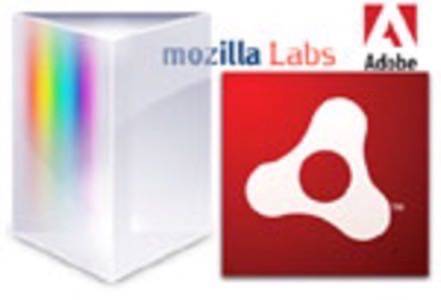Yesterday on this blog Sarah Perez wondered how important is offline access for web apps? Her conclusion was that offline access is important now, but not as important as it once was. And that with the increasing ubiquity of Internet access, it is growing less important every day. I won’t dispute that, but there is an important distinction to be made between offline access to web apps (as Google Gears provides) and desktop access to web apps (as Mozilla’s Prism and Adobe’s AIR provide). The latter is a very important step in the evolution of web apps.

There are two main reasons for why desktop access for web apps is important:
- It will actually help make web apps more popular.
- Running a ton of apps in the browser at once is a pain.
The Desktop is the Key to Making Web Apps Mainstream
As I commented in Sarah’s post yesterday, for those of us who read blogs like ReadWriteWeb, using web apps has become second nature. Putting data in the cloud makes sense, and the thought of being offline for more than 10 minutes per day seems ludicrous. But I suspect that’s not the case for everyone.
For many mainstream users, I think the idea of storing your data in the cloud is kind of creepy (that’s the word my girlfriend used the other day when I was explaining to her how things like Google Docs work). Giving those people access to the software in the traditional form of a desktop application will, in my opinion, help push them gently toward web applications. Get them hooked on Google Docs on the desktop, convince them of the convenience of having anywhere access to the app on the web, and then you might start seeing people really embrace web apps as they get more comfortable with the idea.
The conversation I had with my girlfriend went something like this (paraphrasing heavily here):
Her: “So where are my documents stored?”
Me: “On Google’s servers.”
Her: “And I don’t actually own the software?”
Me: “No, you just sort of rent it.”
Her: “So if Google goes down, or decides to stop making Docs, they take my software and documents with it?”
Me: “Theoretically that could happen, yeah.”
Her: “And if there’s a security breach my documents are there for the taking?”
Me: “Technically, yes.”
Her: “That’s kinda creepy…. I don’t think I like that.”
I think that’s a fairly standard view among mainstream software users. So, desktop access becomes important as a means to an end. Web apps will have a much smoother road to mass mainstream adoption if offline/desktop versions are used as a bridge.
The Browser is No Place for Multitasking
Looking at my Windows taskbar right now, I have copies of Thunderbird, Trillian, Photoshop, FeedDemon, Notepad, Word, Winamp, and Twhirl running. Sure, I could run web app equivalents of each of those in the browser — GMail, Meebo, Aviary Phoenix, Google Reader, Docs, Pandora, and a Twitter module in Netvibes might suffice. But they’d all be running in Firefox at once (oh, Firefox is also running on my system right now).
Managing those apps from the desktop is pretty simple. Managing them all at once in Firefox would be a nightmare, and would likely start to make Firefox unstable and act naughty. That’s precisely the reason FreshBooks launched a desktop app today using Mozilla Prism. “One thing I hear occasionally from our users, especially Web professionals, is that running a bunch of browser-based apps at once can be a particular pain when the browser decides to misbehave,” wrote Freshbooks developer Rich Lafferty.
As Mitch Grasso, founder of Sliderocket (our coverage) wrote in a comment here yesterday, “Adobe AIR isn’t just about taking apps offline. Multi-window support, drag and drop, keyboard shortcuts, and access to the rich clipboard are all things that you take for granted in a desktop app are difficult or impossible to do in a browser. Browsers are designed for reading webpages – not hosting applications.”
There might be a day when the web truly is our operating system, and when browsers really will be designed to run multiple applications. But that day hasn’t arrived, and until it does, bringing web apps to the desktop is another important step in their evolution and the way forward in pushing the idea of hosting data in the cloud out to the mainstream.
Conclusion
There is a third reason desktop/offline access is important: web access isn’t yet ubiquitous. There are plenty of times when connecting to the Internet just isn’t happening, and having access to your data and your software on the desktop is definitely beneficial during those times. But, as Sarah wrote yesterday, no access is becoming more the exception than the rule. Every day offline access is becoming less and less important for applications, but desktop access is still necessary.
What do you think? Let us know your thoughts in the comments below.

















